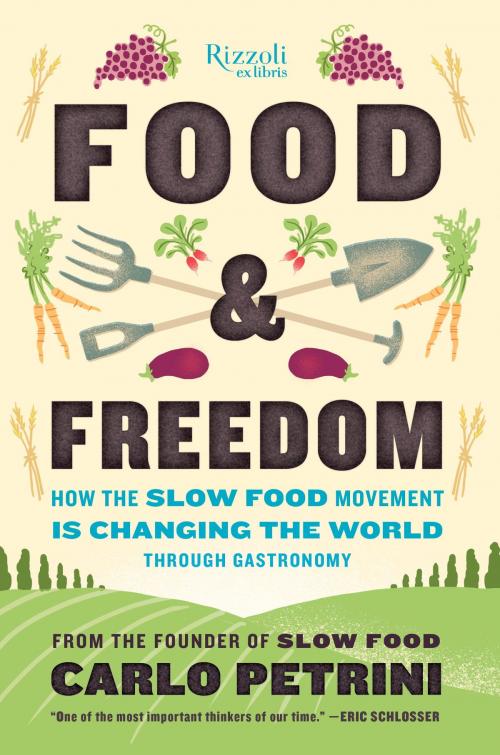Food & Freedom
How the Slow Food Movement Is Changing the World Through Gastronomy
Business & Finance, Industries & Professions, Industries, Nonfiction, Social & Cultural Studies, Political Science, Government, Social Science| Author: | Carlo Petrini | ISBN: | 9780847847211 |
| Publisher: | Rizzoli | Publication: | September 1, 2015 |
| Imprint: | Rizzoli Ex Libris | Language: | English |
| Author: | Carlo Petrini |
| ISBN: | 9780847847211 |
| Publisher: | Rizzoli |
| Publication: | September 1, 2015 |
| Imprint: | Rizzoli Ex Libris |
| Language: | English |
Inspiring the global fight to revolutionize the way food is grown, distributed, and eaten. In the almost thirty years since Carlo Petrini began the Slow Food organization, he has been constantly engaged in the fight for food justice. Beginning first in his native Italy and then expanding all over the world, the movement has created a powerful force for change.
The essential argument of this book is that food is an avenue towards freedom. This uplifting and humanistic message is straightforward: if people can feed themselves, they can be free. In other words, if people can regain control over access to their food—how it is produced, by whom, and how it is distributed—then that can lead to a greater empowerment in all channels of life. Whether in the Amazon jungle talking with tribal elders or on rice paddies in rural Indonesia, the author engages the reader through the excitement of his journeys and the passion of his mission.
Here, Petrini reports upon some of the success stories that he has observed firsthand. From Chiapas to Puglia, Morocco to North Carolina, he has witnessed the many ways different peoples have dealt with food problems. This book allows us to learn from these case studies and lays out models for the future.
Inspiring the global fight to revolutionize the way food is grown, distributed, and eaten. In the almost thirty years since Carlo Petrini began the Slow Food organization, he has been constantly engaged in the fight for food justice. Beginning first in his native Italy and then expanding all over the world, the movement has created a powerful force for change.
The essential argument of this book is that food is an avenue towards freedom. This uplifting and humanistic message is straightforward: if people can feed themselves, they can be free. In other words, if people can regain control over access to their food—how it is produced, by whom, and how it is distributed—then that can lead to a greater empowerment in all channels of life. Whether in the Amazon jungle talking with tribal elders or on rice paddies in rural Indonesia, the author engages the reader through the excitement of his journeys and the passion of his mission.
Here, Petrini reports upon some of the success stories that he has observed firsthand. From Chiapas to Puglia, Morocco to North Carolina, he has witnessed the many ways different peoples have dealt with food problems. This book allows us to learn from these case studies and lays out models for the future.















